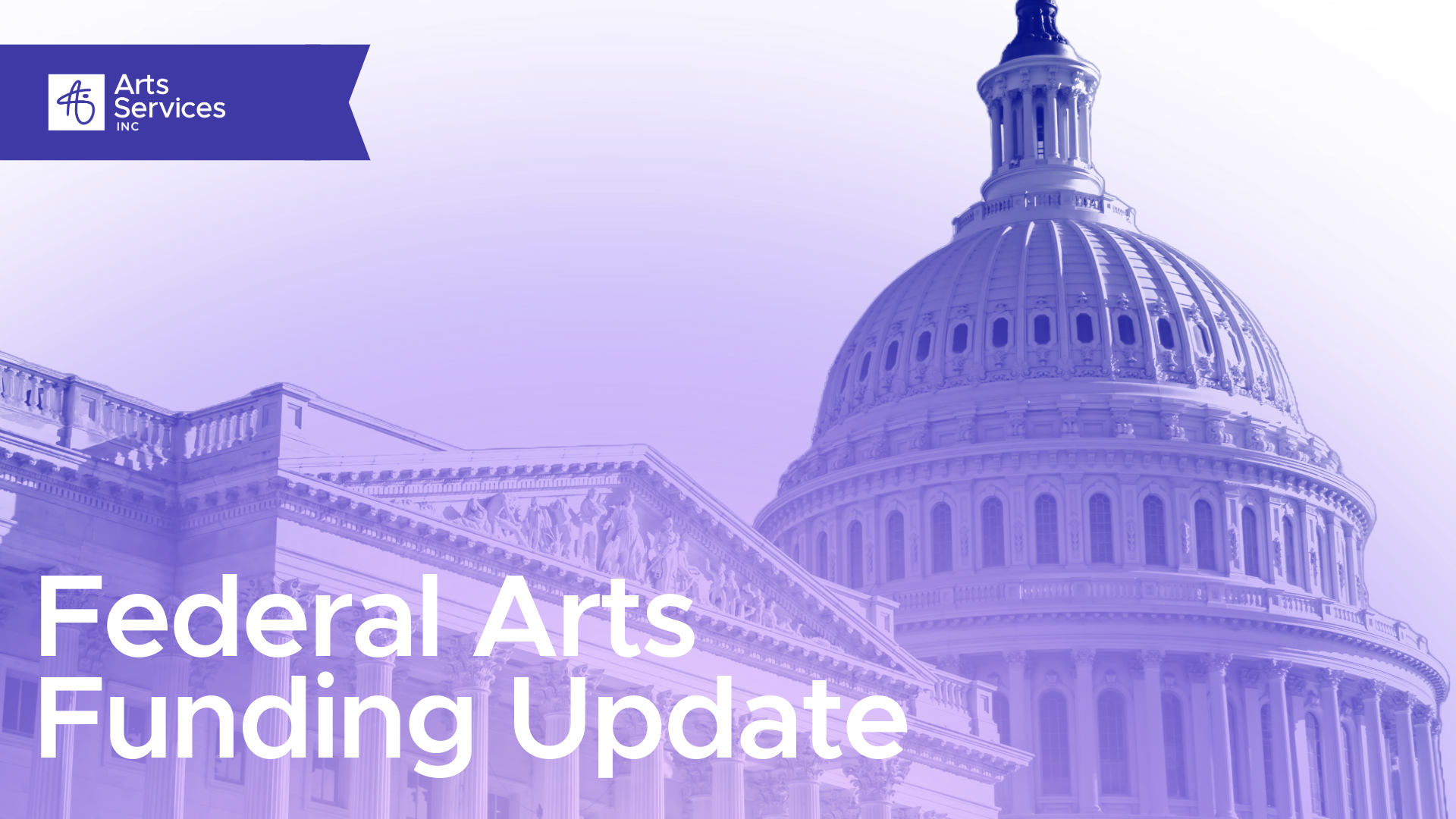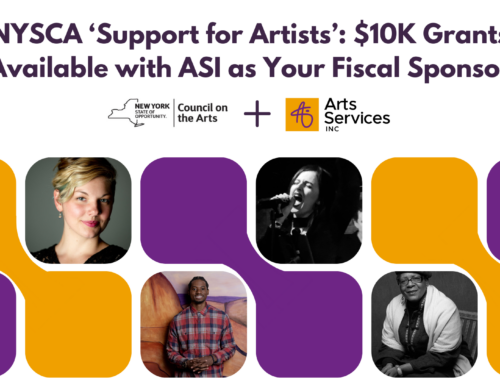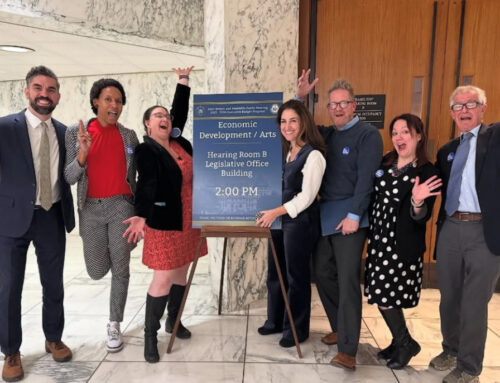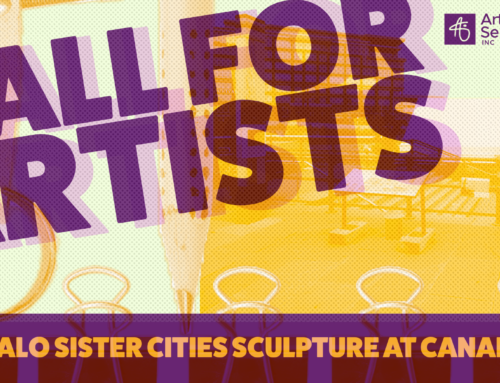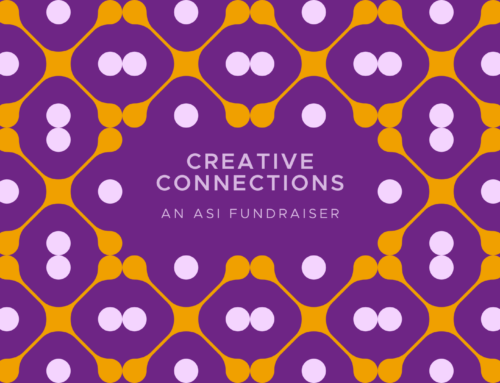On the morning of Friday, May 2, the White House released the President’s Fiscal Year 2026 budget proposal, which calls for the elimination of the National Endowment for the Arts (NEA), the National Endowment for the Humanities (NEH), and the Institute of Museum and Library Services (IMLS). While this is not a new threat—the Trump administration recommended these cuts every year during his first term—this time, the consequences came swiftly and directly.
That same evening, the NEA began issuing grant termination notices to many organizations with pending or open awards. Offers previously extended but not yet issued were rescinded, and organizations with current contracts were told their grants would be terminated as of May 31, 2025. Those affected have only seven days to appeal these decisions. While reimbursements can still be requested until June 30, 2025, the message is clear: vital cultural funding is on the chopping block.
We acknowledge that these details are evolving rapidly. As more information emerges, we encourage our community to stay informed and connected. For real-time updates, we recommend following Americans for the Arts and Arts Action Fund, which are tracking and responding to the latest developments.
What This Means for Western New York
In the past two years alone, 17 Western New York organizations have received direct support from the NEA—funding that fuels performances, festivals, youth programs, and cultural preservation efforts across our region. If eliminated, these programs—and the jobs, partnerships, and community connections they sustain—are at risk.
- The impact goes beyond direct grantees. Regional funders and regranting programs also rely on NEA, NEH, and IMLS dollars. Without them, local funding pools will shrink, and fewer resources will be available to support artists, libraries, museums, and cultural nonprofits.
- We also anticipate pressure on local funding, which may be diverted to address urgent needs created by other federal budget cuts. That means even less support for arts and culture, despite their proven role in economic and community well-being.
- And when federal priorities shift away from arts and culture, it influences corporate sponsorships and individual giving. Businesses and donors may turn their support elsewhere, believing the arts are less critical in a crisis.
This moment represents more than lost funding. It’s a disruption of a vital ecosystem that supports the health and vitality of the Western New York region. We must speak out, stay informed, and stand together to protect it.
What You Can Do Now
Here are three immediate steps you can take to help protect our cultural future:
- Contact your federal elected officials. Let your representatives know that eliminating the NEA, NEH, and IMLS is unacceptable. Share how these cuts will impact your community, your organization, or your work and encourage them to keep funding for these agencies in the federal budget.
- For Nonprofit leaders: Fill out the National Pulse Survey from Americans for the Arts. This quick survey helps national advocacy groups gather real-time data on the impact of funding threats and informs their efforts on Capitol Hill. The deadline to complete this survey is Friday, May 16.
- Stay informed—and stay connected. Americans for the Arts continues to update their resources for Federal Impacts on Arts & Culture. Arts Services Inc. is also here as a resource to any organization or artist facing funding uncertainty.
Other Resources
- A Nonprofit Checklist: What to Do When Your Federal Grant or Contract is Terminated (National Council of Nonprofits)
- Guidance for NEA Grantees Facing Termination or Withdrawal of Funds (Film Festival Alliance)
- Example of Termination and Withdrawal NEA Letters (Theatre for Young Audiences/USA)
- Watch the Webinar Recording of Emergency Guidance on NEA Grant Cancellations (Americans for the Arts)
- WNY’s AEP6 Economic Impact Calculator (Arts Services Inc.)
- Why the Arts Matter in New York Fact Sheet (Americans for the Arts)
We’ve Been Here Before—And We Know How to Respond
The arts community has faced challenges before, and time and again we’ve risen to meet them—with creativity and collaboration.
Now is the time to stand together. Artists, cultural workers, creative businesses, and nonprofit leaders—we all have a role to play in defending public investment in arts and culture and affirming the vital role it plays in our everyday lives.
At Arts Services Inc., we’re committed to helping our community navigate what comes next. We’ll continue to advocate, to inform, and to support those affected by these changes. We believe the arts are essential to the economic, emotional, and cultural health of Western New York—and we know we’re not alone.
Let’s move forward—together—with clarity, strategy, and hope.

